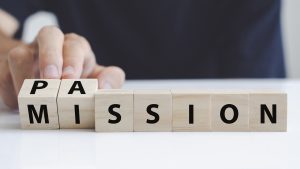My client Frank was having a very hard time with his money. To paraphrase Ernest Hemingway’s bankrupt character Mike in “The Sun Also Rises,” money problems tend to happen gradually, then suddenly.
Frank was, fortunately, still in the “gradually” stage, feeling anxious and a bit untethered. The frustrating thing was that he knew exactly what he needed to do… he just didn’t do it.
Well, to be more precise, he usually didn’t do it.
When he saw that his credit card balances were creeping up, and he’d lost track of what was happening with his investments, and he started worrying about bills that he hadn’t prepared for, then he would pay attention to his spending and check diligently on his investments… for maybe a week, maybe a month.
But when the anxiety subsided a bit as he adjusted his behavior, he would begin to feel less urgency, and eventually the old habits would reassert themselves, slowly re-creating the same problems that had been troubling him.
And the cycle would repeat itself.
We can know the right things to do. We can know how to do them. But until and unless these behaviors become automatic habits, we will never actually do them reliably over time. It just takes too much energy, focus, and willpower to consciously think of everything all the time.
As the great American psychologist William James said about a hundred years ago:
The more of the details of our daily life we can hand over to the effortless custody of automatism, the more our higher powers of mind will be set free for their own proper work. There is no more miserable human being than one in whom nothing is habitual but indecision, and for whom the lighting of every cigar, the drinking of every cup, the time of rising and going to bed every day, and the beginning of every bit of work, are subjects of express volitional deliberation.
This is one of the enduring truths of human nature. If we want to establish a behavior over time, we need to make it automatic.
Unfortunately for James, it turns out that the “miserable human being” he was describing, was himself. As his biographer Robert D. Richardson wrote, James’s was “…a man who really had no habits – or who lacked the habits he most needed, having only the habit of having no habits – and whose life was itself a ‘buzzing blooming confusion’ that was never really under control.”
Sometimes we can teach best what we most need to learn. In that sense James was a fantastic teacher regarding habits.
So how do we establish strong, positive, and consistent habits?
Read More

 Where do we find the energy to achieve big, long-term goals?
Where do we find the energy to achieve big, long-term goals?
Recent Comments